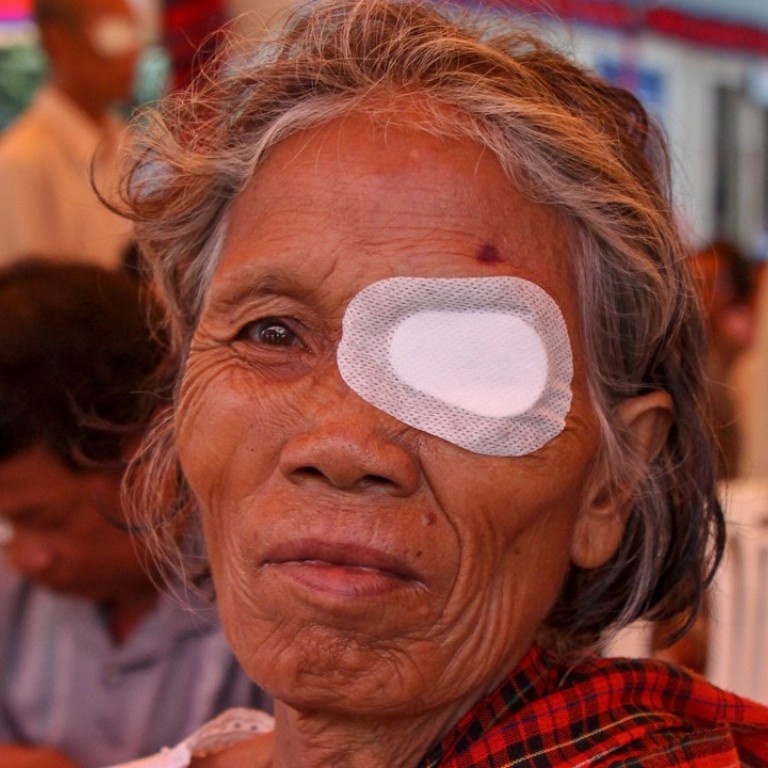
Cambodian patients welcome Chinese doctors as part of health care diplomacy push
Beijing’s latest efforts reflect a more politically aligned strategy to curry favour with locals – and it’s gaining pace as Cambodia’s July 29 election looms and China’s business presence in the country swells
Cambodian rice farmer Peng Nean’s eyesight cannot get much worse. After years of working in the fields the 68-year-old can now see only one metre ahead in the light of day. After sunset, it’s hard for her to see anything at all.
She used to make upwards of US$25 per day from farming, but with her deteriorating condition, Peng is now lucky to scrape together US$10 from selling vegetables at market. That’s with the help of her daughter, who is divorced with two children and had to quit her high-paying restaurant job in the capital to look after her mother.
Peng is one of about 8,000 Cambodians who suffer from cataract-related blindness in Kampong Cham, a vast farming province of 1.6 million people, where there are only two qualified ophthalmologists and surgery costs US$100 per eye. So it came as a pleasant surprise when a group of Chinese doctors arrived in May this year, pledging to eradicate the disease in the province within two years – for free.
“I don’t really have a strong impression on Chinese people,” Peng said as she queued for an eye check-up before the surgery. “But I am thankful that I can get the surgery done for free.”
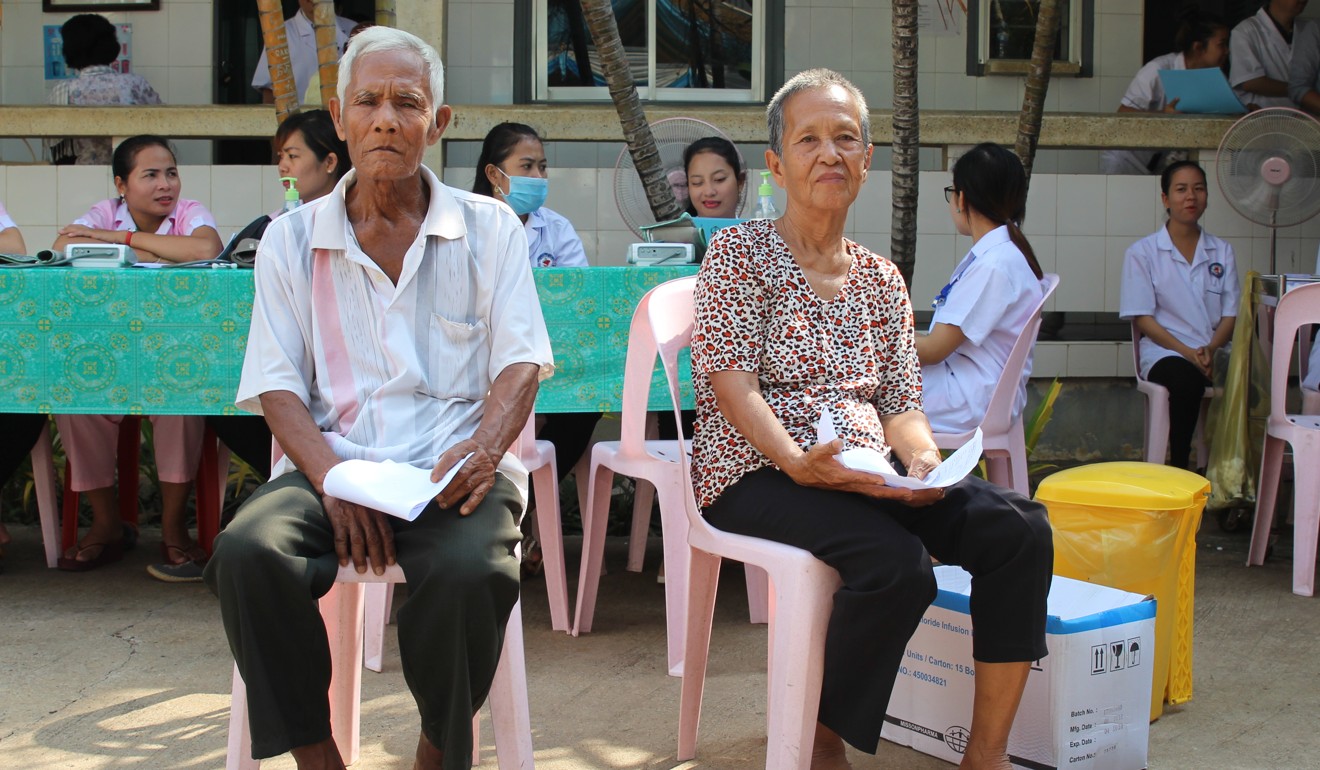
It’s exactly what the Chinese government hopes to hear as it expands its medical aid campaign to win the hearts and minds of Cambodians.
“Through these health care services, we try to improve the hygiene and medical levels of ordinary people. These poor and sick people would grow to know that they have been benefited and been helped by Chinese, and develop a feeling of gratefulness towards China,” said Xiong Bo, the Chinese ambassador in Cambodia.
“If more Cambodians like China, this will be very beneficial to Chinese businesses who would like to invest and set up companies here. Having a popular public opinion is very important … because developing a business in China, you work with locals.”
China first launched health care diplomacy efforts in 1963, when Beijing sent its first medical aid team to Algeria.
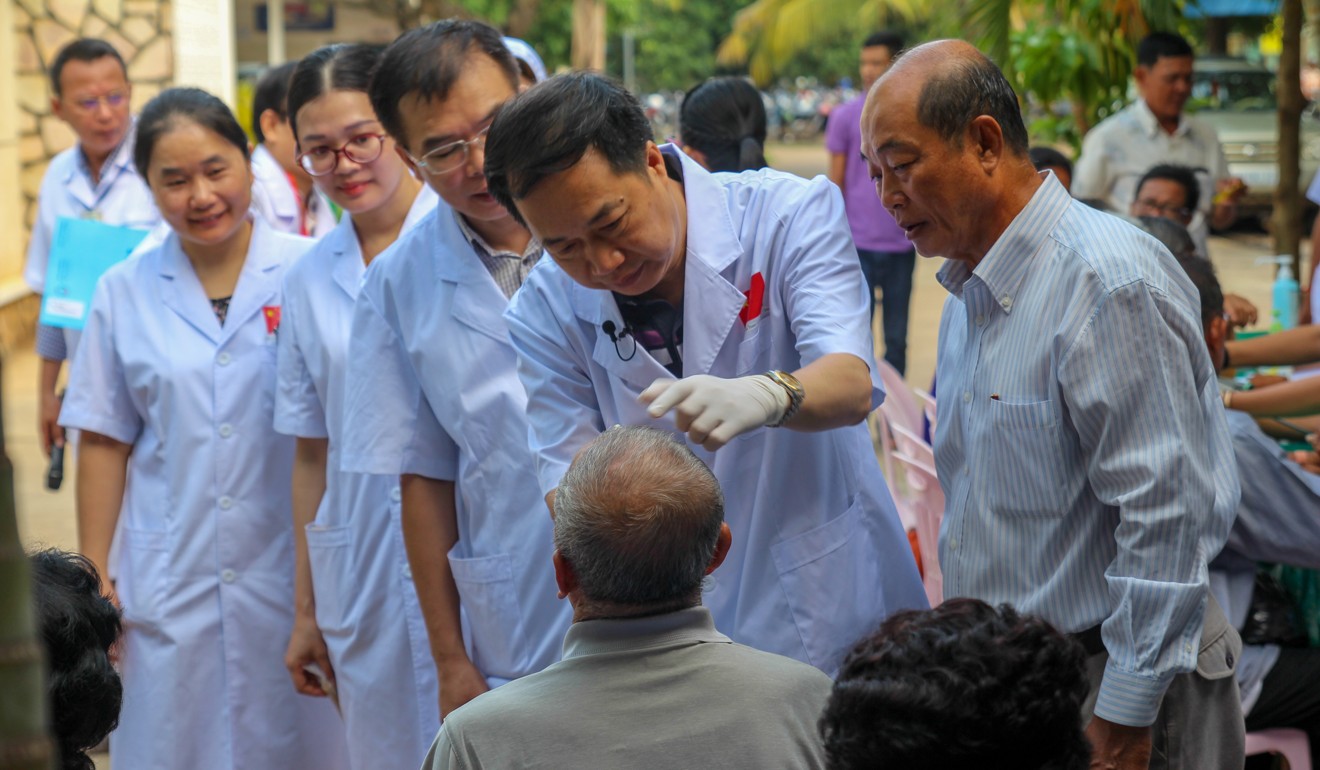
Its free cataract surgery programmes have been running for decades in not only Cambodia, but also countries like North Korea, Vietnam, Bangladesh and Pakistan.
China also has a long history of building roads, bridges, irrigation systems, dams and other projects across Cambodia.
But its latest efforts reflect a more politically aligned strategy to curry favour with locals – and it’s gaining pace as Cambodia’s July 29 election looms and China’s business presence in the country swells.
Cambodia will on July 29 hold general elections with long-time ruler Prime Minister Hun Sen set for a landslide victory after a campaign drawing heavily upon his long-standing alliance with Beijing.
In the first six months of 2018, Xiong has attended at least four major events in Cambodia related to health care, according to the embassy’s website, compared to zero in 2017.
The free cataract surgery programme, launched in May under the banner of China’s “Belt and Road Initiative”, was established in Hun Sen’s home province of Kampong Cham – once a stronghold of the now dissolved opposition Cambodia National Rescue Party.
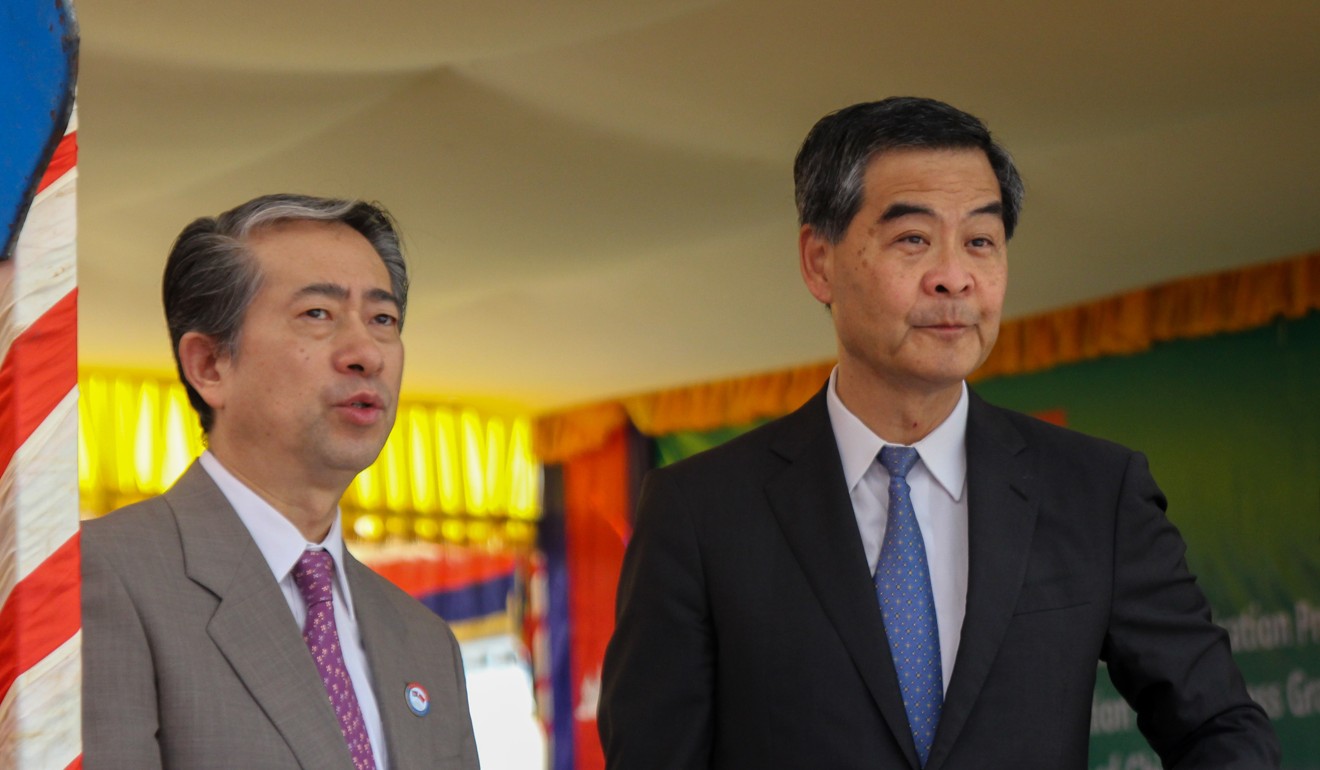
“The opposition party wins this province every time. So we deliberately chose this province for the project, to balance [that power],” a source involved in the cataract surgery programme said. “It was made very clear, [the project] was to add marks for Hun Sen … We have such understanding, but we can’t put [the intention] on the table.”
Beijing has set a relatively low-cost but highly ambitious goal for its health campaign in Kampong Cham.
For HK$10 million (US$1.2 million), two trucks equipped for eye surgery will be stationed in parts of the province for two years, aiming to treat all 8,000 sufferers of the disease in the region.
The source, who wished to remain anonymous because of his close links to the scheme, said the project may help gain votes for the prime minister because “Hun Sen is playing the China card” – showing voters that he is backed by China and that they can benefit from the connection.
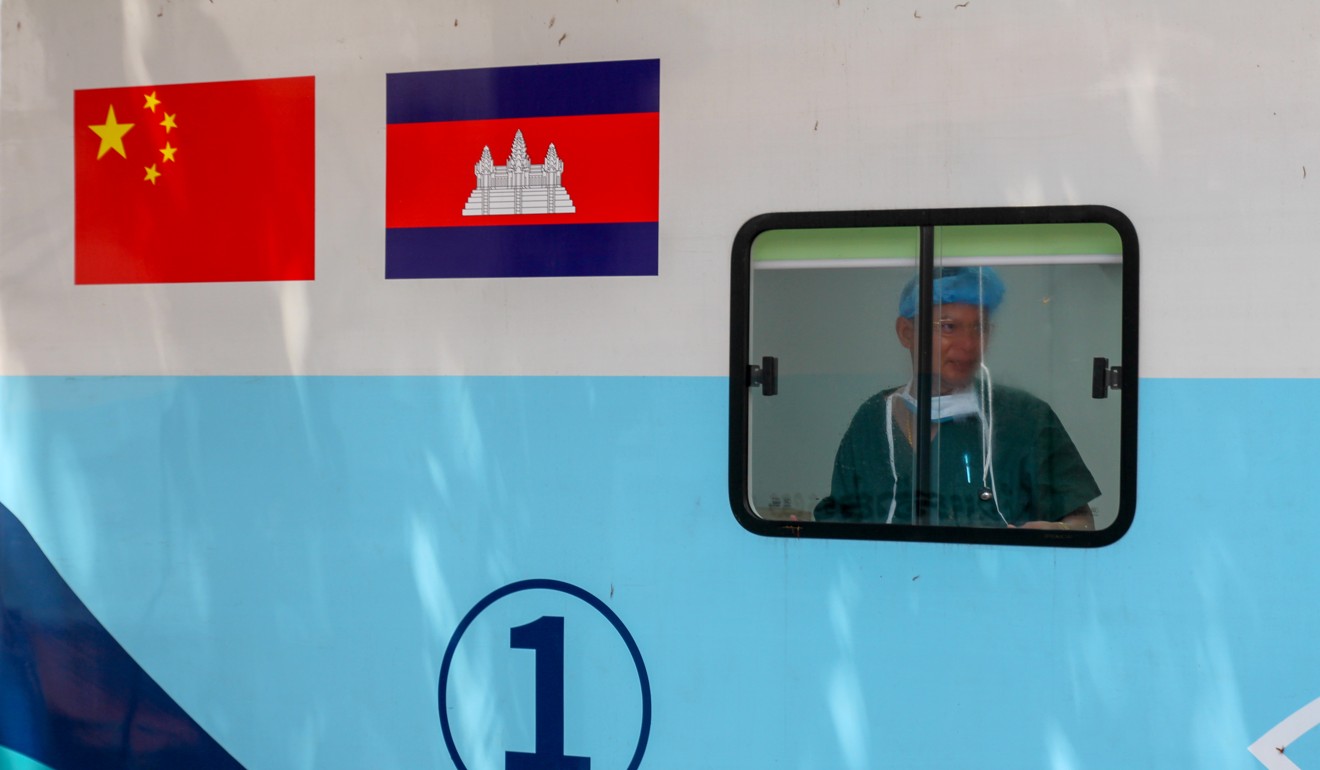
Hong Kong’s former chief executive Leung Chun-ying, who founded the Belt and Road Hong Kong Centre that organised the recent campaign, denied any political agenda, saying the centre was not aware of Cambodia’s scheduled election.
“When we decided on this project, we did not know there was an election, it was completely a decision made on humanitarian grounds,” Leung said.
Leung, now the vice-chairman of China’s top advisory body, the Chinese People’s Political Consultative Conference, said China’s Foreign Ministry was consulted before the programme was launched “because we need to coordinate with the country’s overall strategy of aid”.
“The foreign ministry has a clear picture of this, because there are already some projects ongoing in certain countries, while some other countries have less projects,” he said.
“It is about co-sharing, many local people in developing countries know about China from seeing businessmen in their countries, seeing shops with Chinese words, and we want to let them know we do share our success and it’s not all about making a profit.”
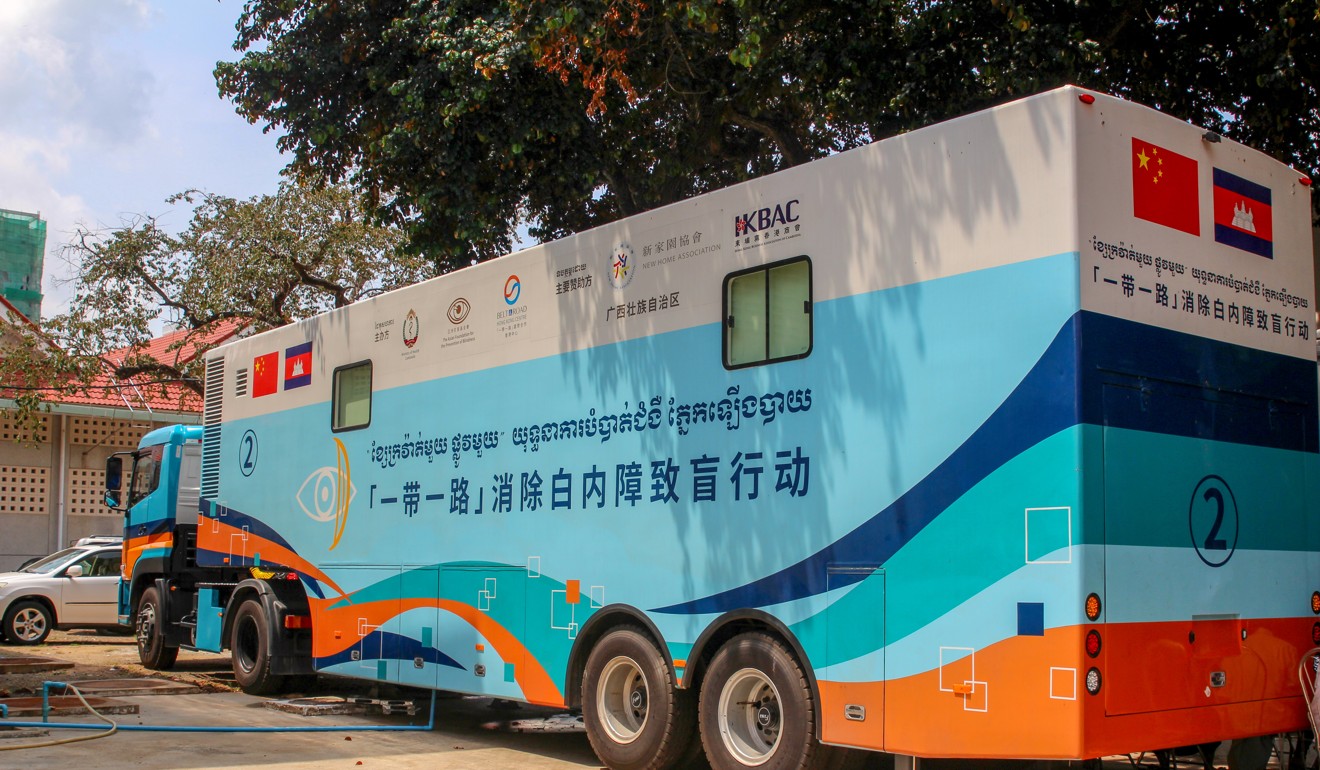
Cambodia’s health care system relies on a mixture of about 20 per cent government funding, 20 per cent private and foreign government donor support and about 60 per cent individual out-of-pocket payments. While exact donor figures are not made public, in 2018, Hun Sen’s administration pledged US$485 million to the health care budget, and plans to increase that to more than US$540 million by 2020 while gradually reducing donor reliance.
Inside the Kampong Cham hospital, flags from Cambodia’s foreign donors – France, the US, South Korea and Japan – have long been displayed, hanging outside almost every building.
The first Chinese flag was mounted in late 2016, when another team of doctors from China’s Hainan province came for a one-off cataract surgery. But for the Cambodians queuing outside, the colours on the flags and the pro-China Belt and Road slogans matter not. As long as the hi-tech surgery trucks are bringing foreign services, they’re happy.
“Cambodian people just like to wait for foreign doctors to treat them because they think they are better – many of them wait for them to come. They usually will get themselves treated by local doctors, even if the service is free or they have the money,” said Sreyleak Sambath, a general doctor who has been working in the hospital for three years.
“Whether these doctors came from China or US or France, it does not matter to them as long as they are foreign.”


